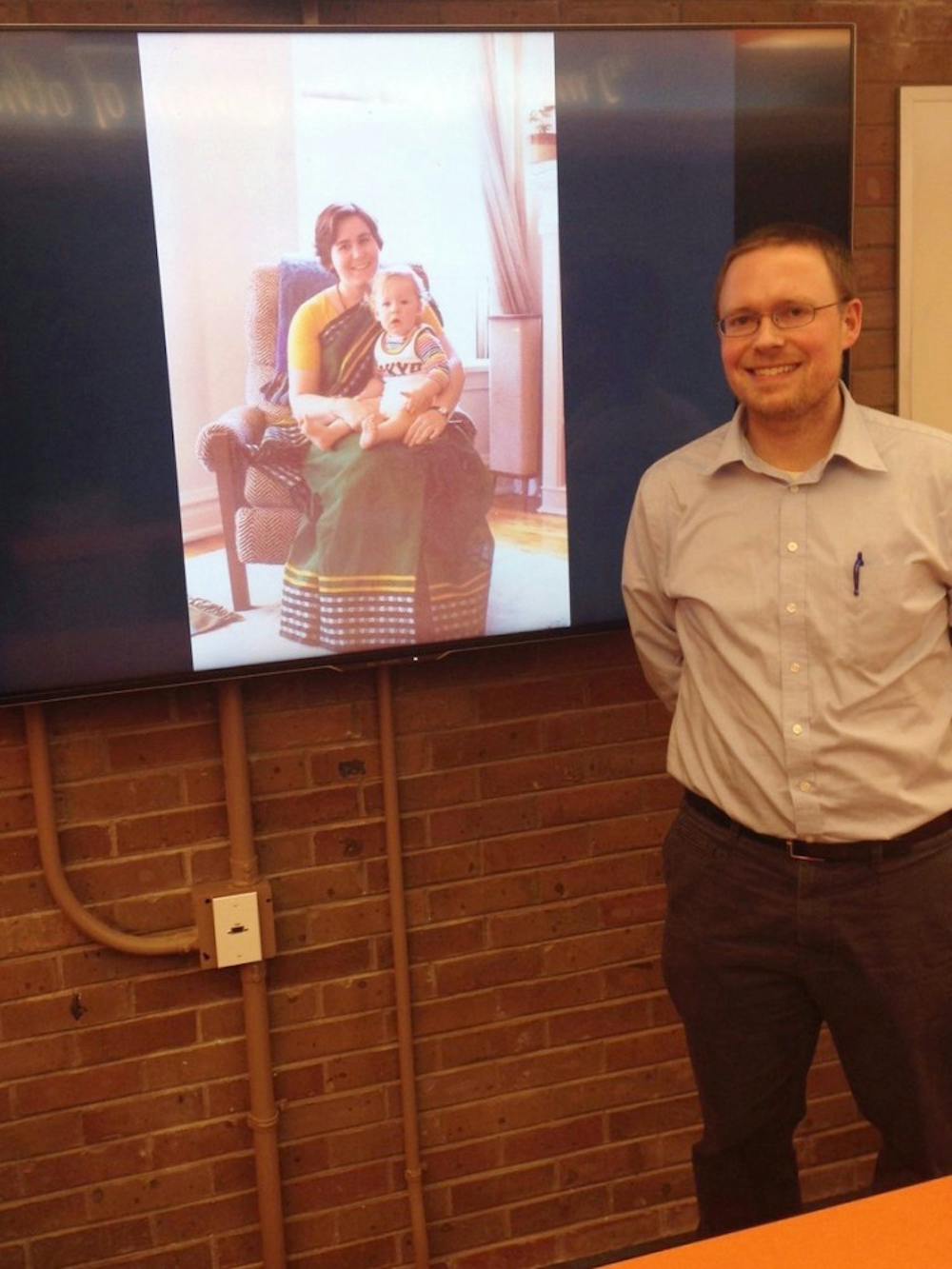Walter Hakala said as a white man, he is often asked how he is qualified to teach students about Islam.
Hakala, a professor in South Asian languages and literature and English, said this brings up the question of who actually has the right to teach such classes.
On March 2, “12 Difficult Conversations in 12 Weeks” or DIFCON12, held its second program of the series. DIFCON12, which is sponsored by the Office of the Vice Provost for Equity and Inclusion and Campus Living, is a series of 12 short lectures that allow students to discuss topics that may make some uncomfortable, such as race and religion, in a “controlled and safe environment.”
Each week on Mondays and Wednesdays, two UB professors lead a group discussion on a relevant topic of their choosing with a small group of students.
UB recently established an Equity and Inclusion Advisory Council made up of faculty, including Vice Provost of Equity and Inclusion Teresa Miller, who facilitated the DIFCON12 event.
Provost Charles Zukoski established the advisory council after the “White Only” art project controversy, in which graduate fine arts student Ashley Powell hung signs reading “White Only” and “Black Only” around campus as part of a class project in September.
Miller said the council would serve as the primary advisory group on sensitive matters, fairness to all students and inclusion across all of UB’s campuses, and DIFCON12 is an initiative to gage how students feel on campus and how they are affected by certain events.
“The idea for the DIFCON series really came out of the talks that I was doing in the fall in the dorms and how difficult it is to have certain conversations,” Miller said. “In the context of the ‘White Only, Black Only’ signs, the clear distress that it caused for some students on campus and the difficulty of talking about that stress inspired a desire to really face these conversations head on.”
Wednesday’s discussion centered whether or not religion had a place at universities. Hakala raised questions relating to how others feel during sensitive topics. Many who attended were split on their views.
Some students said they thought anyone who wanted to teach a class had the right to do so. Others said someone needed to have a certain level of education and expertise.
Angie Quilla, a sophomore triple major in economics, geography and political science, said she is interested in getting to the root of this issue.
“I wanted to learn more about students that we have on campus, especially Islamic students because it’s such a picky thing now,” Quilla said. “When you hear only negative things, [such as terrorism, they’re] given a bad label. So I came to educate myself for respect.”
Kayleigh Hamernik, a freshman environmental studies major, said she enjoyed attending the conversation because it opened her eyes on if a professor is more qualified than others to teach a certain class. Hamernik said she currently has Hakala as a professor and was interested to hear what he had to say regarding the subject.
Hakala said some people do not know he was born in New Delhi, India and spent more years there than in any other city. He completed his Master's of Arts in Urdu literature at Jawaharlal Nehru University in New Delhi and received his PhD from the University of Pennsylvania.
He said once students learn that he has been immersed in the culture and religion, it completely changes their views of him.
“I wanted students to take away that there’s no one way to be Muslim and there’s no one way to teach Islam or any religion,” Hakala said. “There should not just be one person teaching Islam at a university like ours. We have a responsibility to learn more about the people who are at our university, there just aren’t enough professors teaching courses on different cultures.”
Hakala said although he is not the only professor teaching Islam at UB, there "should be more faculty teaching courses on Islam, Hinduism and other religious traditions."
He said while it was a great conversation he wished those who attended were tougher on him and pushed him more.
Miller said she hopes that students will be more enthusiastic about these conversations and will ultimately get others to join who may “otherwise back away.”
“We really want to reach out and invite international students. As a campus, I hope that our culture will evolve into one where people are more willing to discuss controversial issues,” Miller said.
Miller said she would like to continue the series next fall with an emphasis on faculty joining. The next DIFCON12 session will be held on March 9.
Editor's note: The original story stated Hakala spent the majority of his life in India and received his PhD there as well. The Spectrum apologizes for these errors.
Jashonda Williams is a contributing writer. News desk can be reached at news@ubspectrum.com.





